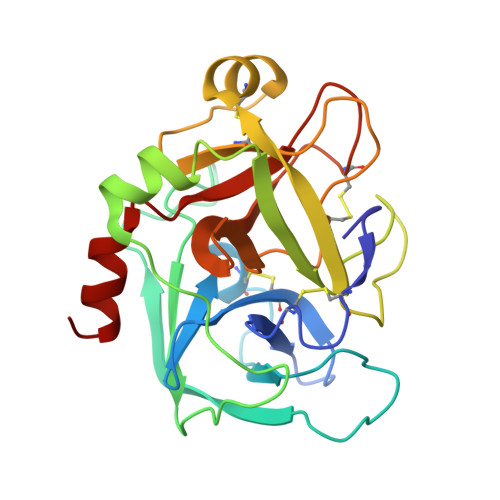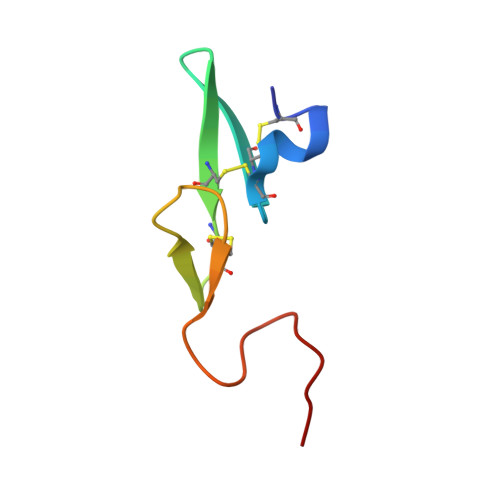7-fluoroindazoles as potent and selective inhibitors of factor xa.
Lee, Y.K., Parks, D.J., Lu, T., Thieu, T.V., Markotan, T., Pan, W., McComsey, D.F., Milkiewicz, K.L., Crysler, C.S., Ninan, N., Abad, M.C., Giardino, E.C., Maryanoff, B.E., Damiano, B.P., Player, M.R.(2008) J Med Chem 51: 282-297
- PubMed: 18159923
- DOI: https://doi.org/10.1021/jm701217r
- Primary Citation of Related Structures:
2RA0 - PubMed Abstract:
We have developed a novel series of potent and selective factor Xa inhibitors that employ a key 7-fluoroindazolyl moiety. The 7-fluoro group on the indazole scaffold replaces the carbonyl group of an amide that is found in previously reported factor Xa inhibitors. The structure of a factor Xa cocrystal containing 7-fluoroindazole 51a showed the 7-fluoro atom hydrogen-bonding with the N-H of Gly216 (2.9 A) in the peptide backbone. Thus, the 7-fluoroindazolyl moiety not only occupied the same space as the carbonyl group of an amide found in prior factor Xa inhibitors but also maintained a hydrogen bond interaction with the protein's beta-sheet domain. The structure-activity relationship for this series was consistent with this finding, as the factor Xa inhibitory potencies were about 60-fold greater (DeltaDelta G approximately 2.4 kcal/mol) for the 7-fluoroindazoles 25a and 25c versus the corresponding indazoles 25b and 25d. Highly convergent synthesis of these factor Xa inhibitors is also described.
- Johnson & Johnson Pharmaceutical Research and Development, Welsh and McKean Roads, Spring House, Pennsylvania 19477-0776, USA.
Organizational Affiliation:


















